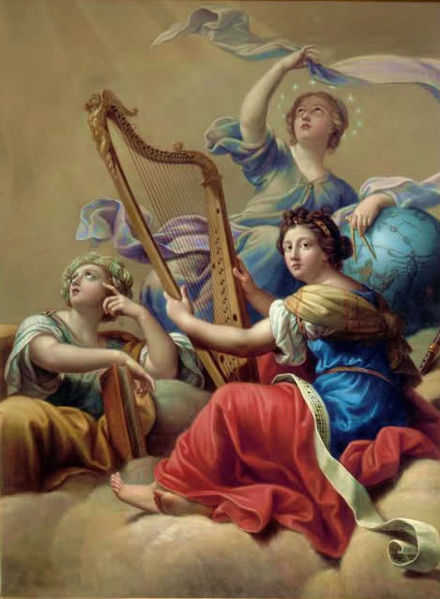TERPSICHORE IN GREEK MYTHOLOGY
In Greek mythology Terpsichore is named as one of the Nine Younger Muses, the minor goddess of song and dance.
The Muse Terpsichore in Greek Mythology
The Nine Muses, or Younger Muses, were so named to distinguish them from the three Elder Muses, though both sets of sisters were the daughters of Zeus. In the case of Terpsichore, and of course the other Younger Muses, the partner of Zeus was Mnemosyne one of the Titans.
Zeus was said to have slept with Mnemosyne on nine separate nights.
Zeus was said to have slept with Mnemosyne on nine separate nights.
Goddess of Dance
The name of Terpsichore is normally translated as “delight in dance”, and as each of the Younger Muses has their own sphere of influence, it was natural that Terpsichore became known as the goddess of dance and choral song. Thus, with her lyre in hand, Terpsichore would provide the music for choral dancers.
Terpsichore Mother of LinusThe legendary musician Linus is said to be a son of Terpsichore, according the Theban poet Pindar. This parentage is also given in the Suda, the Byzantine era encyclopedia once attributed to an author called Soudas.
The parentage of Linus though is not agreed upon, and a number of the other muses, including Calliope and Ourania are said to be the musician's mother. |
|
Terpsichore Mother of the Sirens
In a similar vein, Terpsichore is said to be the mother of the Sirens, the sea-nymphs who were infamous for luring unwary sailors to their deaths. Terpsichore, according to both Nonnus and Apollonius Rhodius partnered with the river god Achelous to produce these sea-nymphs, but other prominent writers, including Hyginus, named the mother of the Sirens, not Terpsichore, but her sister Melpomene.
|
|
Colin Quartermain - Terpsichore - 15th September 2019
